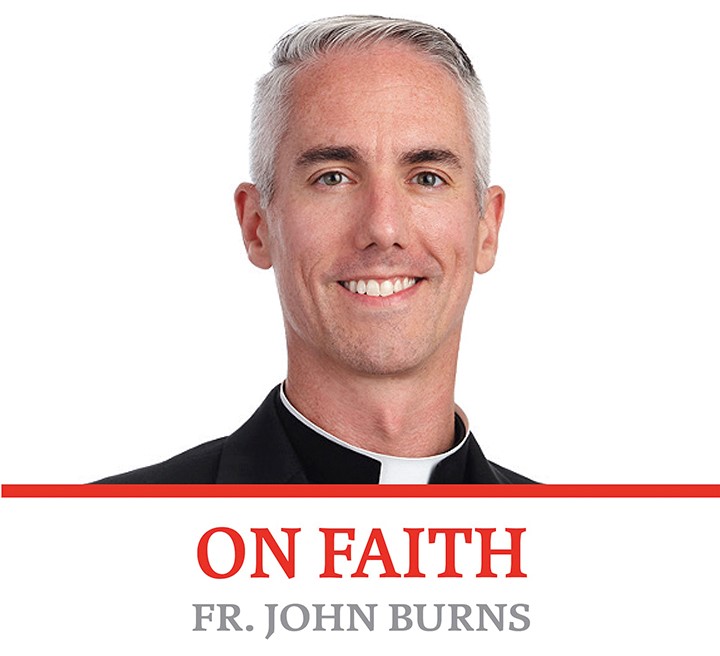In all of Scripture, arguably the most challenging teaching of Christ is the command to forgive our offenders. As Christmas approaches, we may be reminded that family members can be among the most difficult to forgive. Forgiveness, when practiced authentically, brings us to confront the interior brokenness that perpetuates the cycles of brokenness in our families and beyond.
When unforgiveness reigns in the human heart, we exclude ourselves from the gift of the Father’s mercy: “In refusing to forgive our brothers and sisters, our hearts are closed and their hardness makes them impervious to the Father’s merciful love.” (CCC 2840)
When Jesus speaks of forgiveness in Matthew’s Gospel, he refers to forgiveness from the heart.
In the schema of divine revelation, love bears an inherent relationship with justice: “Owe nothing to anyone, except to love one another.” (Romans 13:8) In our stories, wherever the love we needed is withdrawn or the love we were owed by others was withheld, we react painfully and passionately. The injury is experienced as an interpersonal injustice, which invokes a form of debt, and anger arises to restore justice and inflict punishment. “How dare you! Give me back what you took … and you’ll suffer for it, too.” The viciousness of resentment allows us to formalize its status as a habitual disposition against the good.
St. Thomas Aquinas offers a rich insight: Anger is constituted by simpler passions, first by sorrow for the perceived injustice of love withdrawn or withheld. If, and only if, the passions rise to eliminate the cause of sorrow, then we have anger. Beneath every enraged heart is actually a broken heart.
Understanding sorrow’s place within anger helps liberate the heart to grieve beneath the places of anger toward our offenders. Not only are we angry about what was done to us, we are also sad to learn that the relationship is not what we thought or hoped. Grief and lamentation serve to soften anger’s power as they also remind us that the heart is alive and suffering. Then, with the help of grace, we can also see that those who have hurt us have typically done so from their own (often hidden) brokenness.
Here’s a crucial consideration: Each wound has this structure, and we often bear multiple offenses from just one offender. With some careful examination, we can gain an understanding of what happened, injury by injury, beneath what can feel like an inner mess. And that sets us up for deep forgiveness.
Forgiveness from the Heart
Into this framework of the emotions, I would propose a theological definition of forgiveness from the heart. This definition represents a synthesis of the theology of the Catholic moral tradition and the psychological work of Dr. Robert Enright, and it consists of seven overlapping and interrelated components.
The more completely we can observe some, and ideally all, of these elements, the more sincere and lasting will be the freedom we experience through forgiveness.
- Forgiveness is a virtuous process, first and foremost one that unfolds within the heart, and may or may not issue outward into interpersonal interaction.
- Forgiveness entails the intellectual activity of taking a full inventory of the wrong done, a clear articulation of the object of the injustice and the debt invoked.
- Forgiveness requires a willful departure from the quest for revenge, an end to the battle posture.
- Forgiveness requires, again at the level of the will, the choice to no longer emotionally demand repayment.
- Forgiveness requires that the one offended leave the pursuit of justice to another authority.
- Forgiveness, as a virtuous process, is phenomenologically observable as the shift from ill-will to goodwill, or from curse to blessing.
- Forgiveness culminates in and is expressed by the offering of an undeserved gift. It is perfected when one’s suffering is united to Christ’s as an offering for the salvation of the one who inflicted it.
It may seem strange to say, but I believe it is deeply true: Forgiveness is one of the most beautiful aspects of the Christian life. The world expects revenge — a slap back, insult for insult. Sometimes we long for it. Forgiveness is disarming, almost unsettling, even as it is also captivating.
Our families and world simply cannot continue on the path we tread so treacherously. Christ has established for us a way that he himself chose; deep forgiveness is a graced participation in the heart of God.

